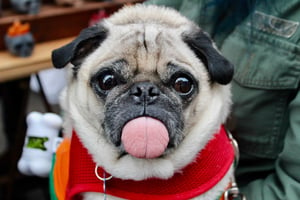German Shepherd puppies are lovable and loyal companions, but they can also display aggressive...
How to Control Your Puppy from Biting
Training your puppy not to bite is an important part of responsible pet ownership. Biting can be dangerous and can lead to serious injuries, so it’s important to start teaching your puppy not to bite as soon as possible. This article will provide tips on how to control your puppy from biting, as well as provide advice on how to prevent biting in the future.
Understand Why Puppies Bite
Before you can effectively teach your puppy not to bite, it’s important to understand why puppies bite in the first place. Puppies bite for a variety of reasons, including teething, play, fear, pain, and aggression. It’s important to identify the reason why your puppy is biting so you can address the issue appropriately.
Teething: Puppies go through a teething stage, just like babies. During this stage, puppies use their mouths to explore and learn about their environment. They may bite and chew on objects as a way to relieve the discomfort of teething.
Play: Puppies also bite as a way to play. Puppies often play with each other and may use their teeth and mouths to grab and hold each other. This type of biting is natural and is usually not a cause for concern.
Fear: Puppies may bite out of fear or anxiety. If your puppy is feeling fearful or threatened, they may bite as a way to protect themselves. This type of biting should be addressed immediately, as it can become a serious problem if left unchecked.
Pain: Puppies may also bite out of pain or discomfort. If your puppy is in pain, they may bite as a way to try to protect themselves from further pain or injury. If your puppy is in pain, it’s important to take them to the vet for an examination.
Aggression: Aggressive biting is a serious issue that should be addressed immediately. Aggressive biting is often a sign of a larger problem and can lead to serious injury. If your puppy is exhibiting aggressive behavior, it’s important to seek professional help from a qualified dog trainer or behaviorist.
Redirect Your Puppy's Biting
Once you understand why your puppy is biting, you can begin to redirect their behavior. The best way to do this is to provide your puppy with an appropriate alternative to biting. This could be a chew toy, a treat, or a toy they can play with. When your puppy begins to bite, redirect their attention to the alternative activity.
It’s also important to provide positive reinforcement when your puppy is not biting. Praise your puppy and give them treats when they are playing appropriately. This will help to reinforce the desired behavior and discourage the undesired behavior.
Discourage Biting Through Discipline
Once you have redirected your puppy’s biting, it’s important to discourage the behavior through discipline. When your puppy bites, it’s important to respond immediately. Make a loud noise (such as a clap or a verbal command) to startle your puppy and get their attention. Then, remove yourself from the situation. This will help to show your puppy that biting is not acceptable behavior.
It’s also important to provide consistent discipline. If your puppy bites and you respond one time, but then ignore the behavior the next time, your puppy will be confused and will not understand what is expected of them. Be consistent in your discipline and your puppy will learn quickly.
Prevent Biting Through Socialisation
It’s important to socialise your puppy from an early age. Socialisation is the process of exposing your puppy to different people, animals, and environments. This will help your puppy to develop positive social skills and will help to prevent biting in the future.
Take your puppy to puppy classes, dog parks, and other social events. This will help your puppy to learn appropriate social skills and will help them to become comfortable in different environments. Socialisation is an important part of any puppy’s training and should not be overlooked.
Conclusion
Training your puppy not to bite is an important part of responsible pet ownership. By understanding why puppies bite, redirecting their behavior, disciplining them when they do bite, and socialising them from an early age, you can help to control your puppy’s biting and ensure that they grow up to be a happy and well-behaved dog.



